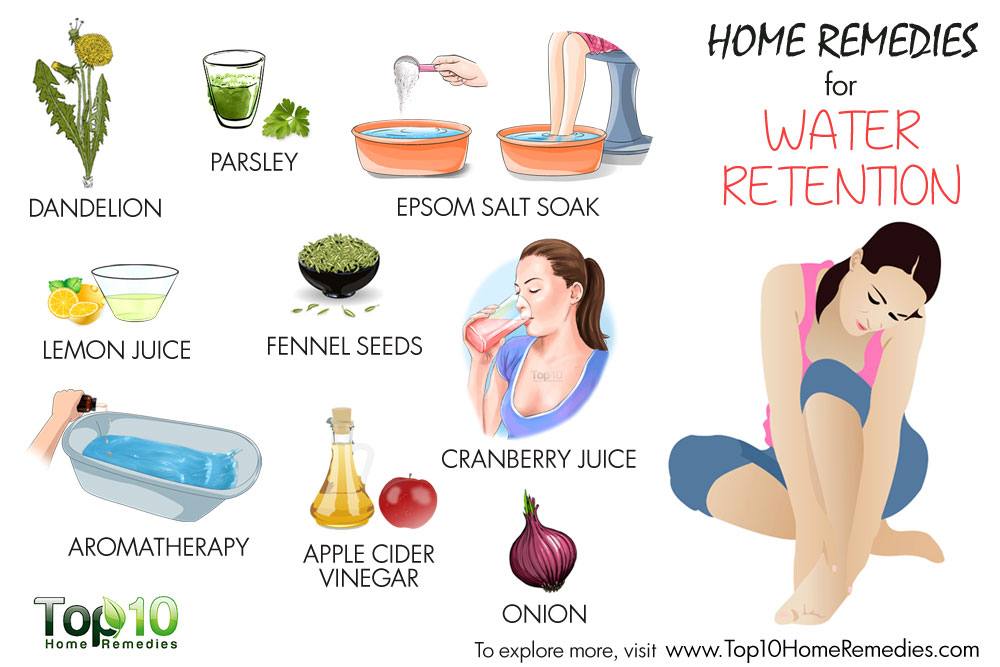There is a class of drugs used to treat high blood pressure. These drugs are called diuretics. But how much is known about these drugs? This article is all about diuretics.
What are Diuretics?
A diuretic is any substance that advances diuresis, which is the increased production of urine. This definition includes forced diuresis. A diuretic pill is occasionally informally called a water tablet. There are several categories of diuretics. However, all diuretics increase the excretion of water from the body through the kidneys.
What are Diuretics For?
The most widespread incident treated with diuretics is high blood pressure. The drugs lessen the amount of fluid in the blood vessels, and this assists in lowering blood pressure.
Another condition treated with diuretics is congestive heart failure, which keeps the heart pumping blood effectively throughout the body. This condition leads to a buildup of fluids in the body, which is called edema. Diuretics can assist in reducing this fluid buildup.
Additionally, diuretics can treat liver disease and several kinds of kidney disease. The use of several diuretics is also used in cases of overdose or poisoning to aid with the increase of the excretion of certain substances from a patient’s body.
Types of Diuretics
The three (3) categories of diuretic medications are called thiazide, loop, and potassium-sparing diuretics. All of which causes the body to excrete more fluids as urine.
Thiazide diuretics – Thiazides are the most usually prescribed diuretics. They are most frequently used to treat high blood pressure. These drugs not only decrease fluids but also cause the blood vessels to relax.
Thiazides are occasionally in use with other medications used to lower blood pressure. Examples of thiazides include:
- chlorthalidone
- hydrochlorothiazide (Microzide)
- indapamide
- metolazone
Loop diuretics – Loop diuretics are frequently used in the treatment of heart failure. Examples of these drugs include:
- bumetanide
- furosemide (Lasix)
- torsemide (Demadex)
Potassium-sparing diuretics – Potassium-sparing diuretics decrease fluid levels in the body without causing the loss of potassium, an essential nutrient.
The other categories of diuretics cause the loss of potassium, which can lead to additional health problems such as arrhythmia. Potassium-sparing diuretics can be prescribed for individuals at risk of low potassium levels, for example, those who take other medications that diminish potassium.
However, potassium-sparing diuretics do not reduce blood pressure as well as the other categories of diuretics. Therefore, a physician may prescribe a potassium-sparing diuretic with an additional medication that also lowers blood pressure.
Examples of potassium-sparing diuretics include:
- amiloride
- eplerenone (Inspra)
- spironolactone (Aldactone)
- triamterene (Dyrenium)
Side Effects of Diuretics
When taken as prescribed, diuretics are usually well received by the body. However, they can still cause a few side effects.
More common side effects
The more common side effects of diuretics include:
- diarrhea
- dizziness
- elevated blood sugar
- elevated cholesterol
- excessive potassium in the blood (for potassium-sparing diuretics)
- gout
- headache
- insufficient potassium in the blood
- minimum sodium levels
- muscle cramps
- skin rash
- thirst
Serious side effects
In exceptional instances, diuretics can cause serious side effects. These may include:
- allergic reaction
- irregular heartbeat
- kidney failure
If individuals have side effects that bother them while consuming diuretics, they should talk to their doctor. He or she may prescribe a different medication or combination of drugs to reduce the side effects.
It is essential to mention that whether or not an individual has side effects, it is crucial not to stop taking their diuretic without first talking to their doctor.
Diuretic Risks
Diuretics are safe in general, but there are some risks if other medical conditions exist or certain medications are taken.
Conditions of concern
Before an individual takes a prescribed diuretic, they should be sure to tell their doctor if they have any of the following medical situations or issues:
- diabetes
- frequent dehydration
- gout
- kidney problems
- lupus
- menstrual problems
- pancreatitis
Drug Interactions
When starting a new medication, individuals must make sure to tell their doctor about any other medicines, supplements, or herbs they are taking. Some drugs that might interact with a diuretic include:
- antidepressants, for example, fluoxetine (Prozac) and venlafaxine (Effexor XR)
- cyclosporine (Restasis)
- digoxin (Digox)
- lithium
- other drugs for high blood pressure
Natural Diuretics

Some herbs and dietary supplements may help excrete water (diuretic) and help with sodium and water retention. Examples consist of dandelion, ginger, parsley, hawthorn, and juniper. However, again, one must proceed with caution before engaging with any products with a diuretic effect and speak with their doctor, especially if they are on other medications.
Below are more details on some common herbs and supplements that act as natural diuretics.
Dandelion – To a few, the dandelion is merely a weed. However, research has discovered that one of the plant’s compounds enhances kidney
activity and increases the frequency of urination. The recommended method of consumption is to try dandelion in tea. shop for dandelion tea online. [affiliate link]
Hawthorn – This family member of the rose family is a potent diuretic. It can decrease fluid buildup, which means it can additionally improve symptoms of congestive heart failure. Research has exposed that the plant’s nutrients amplify urinary excretion and flow.
Hawthorn berries can additionally work as diuretics and may aid in the treatment of kidney problems. Hawthorn is also available as a tea. shop for hawthorne tea online. [affiliate link]
Horsetail – A 2014 study
discovered that horsetail extract contained the same diuretic effects as prescription medications but with fewer side effects. Horsetail may be an excellent alternative to prescription diuretics, especially for individuals who have had problems with side effects. Horsetail is also available as a tea. shop for horsetail tea online. [affiliate link]
Juniper – The juniper plant has been used as a diuretic ever since medieval times. Few modern-day studies have verified its benefits, but the evergreen has been shown to have a significant effect
on urine volume in animals.
Like many natural diuretics, juniper does not seem to lower potassium levels as some drugs. It is a good idea to try adding juniper to flavor meat and game dishes.
Shop for juniper berries OR juniper tea ONLINE. [affiliate links]
Green and black tea – Every time a hot cup of tea is enjoyed, an individual may be flushing excess fluid from their system. Both teas, green and black, have shown potential as natural diuretics.
shop for green tea online. shop for black tea online. [affiliate links]
Parsley – Although parsley is mainly used as a garnish, it can be helpful for individuals who are having problems tolerating diuretic drugs. A 2002 study found that it might assist with urinary volume. More recent research
has also confirmed its diuretic properties. shop for parsley online. [affiliate link]
Hibiscus – This flower contains more than its looks. Roselle, a species of hibiscus, demonstrated substantial diuretic effects in one 2012 study. A different study from that same year also observed that hibiscus assisted with increasing kidney filtration. Hibiscus is available as a tea. shop for Hibiscus tea online. [affiliate link]
Diuretic foods – Besides the above natural diuretics, cutting back on sodium and exercising more can additionally aid in reducing fluid buildup. Consuming more fruits and vegetables that act as diuretics may be an additional beneficial solution. These foods include:
- asparagus
- bell peppers
- berries
- celery
- garlic
- grapes
- onions
- watermelon
Other Ways to Reduce Fluid Retention

There are other ways to reduce fluid retention either in lieu of or in addition to diuretics. These include:
- Exercise – Physical activity can aid in getting rid of extra fluid by enhancing blood flow to the tissues and causing perspiration.
- Boost magnesium intake – Magnesium is an electrolyte that aids in regulating fluid balance. MAGNESIUM SUPPLEMENTS have been shown to help in the reduction of fluid retention in women with premenstrual syndrome.
- Consume potassium-rich foods – Eating potassium-rich foods can boost urine production, decrease sodium levels, and reduce fluid retention.
- Keep hydrated –
Some individuals believe that dehydration can increase the risk of water retention. - Consume less sodium (salt) – A high-salt diet can promote fluid retention.
If you have any questions, comments, concerns, or if you would like to share your experience with diuretics, please leave them below.
Good health!
Keywords:
Thank you for covering everything about the drug diuretics. It sounds like a good product for high blood pressure patients. Just scared of some side effects like diarrhea and diabetes. Thus, I will never take this on my own without my own doctor check up as the doctor knows which is best to give for his patients.
Yes, Bernard, you should always consult with your doctor first. Medical diuretics are only available by prescription; in the US anyway.
Thanks for commenting!
Hi Nathaniel, I pleased to meet you.
This is a very interesting and important post about the Diuretics. I have really learned a lot from this. I did not know that one of the conditions treated with diuretics is congestive heart failure, which keeps the heart pumping blood effectively throughout the body, like you stated. This is very important, thank you very much for sharing.
Be safe!
Hello Kokontala – I am glad to know that this article was informative for you. Maintaining the proper fluid level in the body helps with congestive heart failure.
Thanks for commenting!